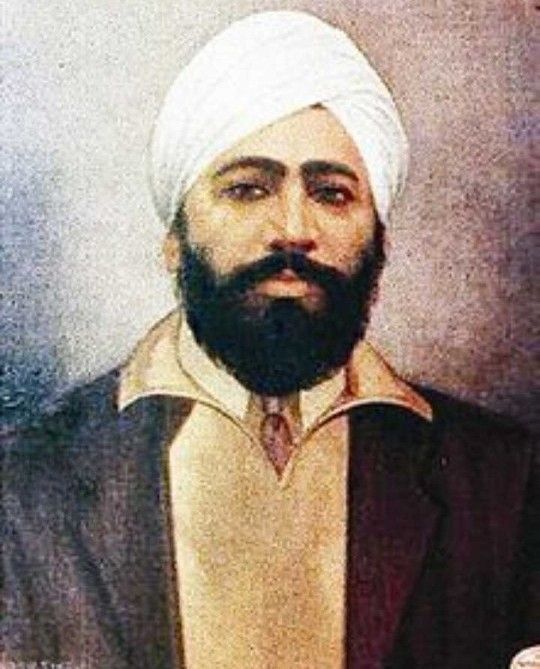
🔥 Introduction
Sardar Udham Singh is not just a name in India’s freedom struggle—he’s a symbol of unshakable resolve, righteous vengeance, and fearless patriotism. Born in 1899 in Sunam, Punjab, Udham Singh witnessed the brutal Jallianwala Bagh massacre in 1919, where thousands of innocent Indians were gunned down by British troops under General Dyer’s command. That moment didn’t just scar him—it sculpted him. From that day forward, Sardar Udham Singh vowed to avenge the blood of his people, and he did so with precision, patience, and poetic justice.
Unlike many revolutionaries who fought with slogans and speeches, Sardar Udham Singh fought with silence and strategy. He waited over two decades, crossing borders, changing identities, and building alliances—all for one purpose: to strike at the heart of colonial arrogance. In 1940, in London, he assassinated Michael O’Dwyer, the former Lieutenant Governor of Punjab who had endorsed the massacre. With that act, Udham Singh didn’t just take revenge—he delivered a message: India’s soul cannot be silenced.
What makes Sardar Udham Singh timeless is his fearless clarity. He didn’t seek fame. He didn’t crave applause. He didn’t deliver fiery speeches. He delivered justice. His trial in London was a masterclass in courage. When asked why he did it, he said, “I did it because I had a grudge against him. He deserved it.” No excuses. No apologies. Just truth.
In today’s world of noise and narratives, Sardar Udham Singh’s legacy reminds us that real revolution is rooted in purpose, not performance. He teaches us that silence can be stronger than slogans, and that revenge, when driven by justice, becomes resistance. His life is a blueprint for creators, patriots, and dreamers who want to build impact without ego.
Table of Contents
🎙️ Reconstructed Speech of Sardar Udham Singh
📍 Location: Central Criminal Court (Old Bailey), London
📅 Date: 4 June 1940
👥 Crowd: ~250 people (judges, lawyers, press, British officials)
“I am Sardar Udham Singh. I am not here to beg for mercy. I am here to speak for the blood that was spilled in Amritsar.”
“I waited 21 years—not for revenge, but for justice. On 13 April 1919, I saw my people—men, women, children—slaughtered in cold blood at Jallianwala Bagh. I was 20. I saw mothers torn apart, children screaming, bodies piled like stones. And the man who endorsed it—Michael O’Dwyer—walked free, honored, protected.”
“I carried that pain across oceans. I worked in factories, changed names, crossed borders. But I never forgot. Because Sardar Udham Singh was not born to forget—he was born to finish what history started.”
“You call me a murderer. I call myself a soldier. Not of violence—but of vengeance. I did not kill a man—I killed an idea. The idea that the British Empire could massacre Indians and never answer for it.”
“I did not act in anger. I acted in honor. I did not shoot blindly. I aimed with purpose. I did not run. I stood and said, ‘I am Sardar Udham Singh. I did it.’ Because I wanted the world to know that India’s soul cannot be silenced.”
“You may hang me. You may bury me in a foreign land. But my blood will mix with the soil of Bharat. My name will rise with every rebel. My story will roar in every freedom fighter’s heart.”
“I am not afraid of death. I have seen worse. I have seen my people die without reason. I have seen my country bleed without justice. If my death brings light to that darkness, then I welcome it.”
“I do not ask for sympathy. I ask for memory. Let the name Sardar Udham Singh be remembered not with pity—but with pride. Let every Indian child know that one man stood up, alone, and said: Enough.”
“I am not a terrorist. I am a patriot. I am not a criminal. I am a consequence. I am not a footnote. I am a flame.”
“Jai Hind. Vande Mataram. Sardar Udham Singh lives on.”
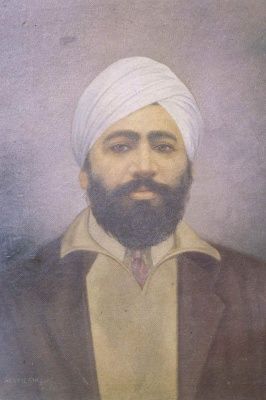
🔥 Why Quotes Matter Today: Sardar Udham Singh
📍1. Words Forged in Fire
In the world of freedom fighters, Sardar Udham Singh stands apart—not for how much he spoke, but for how deeply his few words cut. His quotes weren’t crafted for applause—they were born from agony, forged in the fire of Jallianwala Bagh, and delivered with surgical precision. When he said, “I did it because I had a grudge against him,” during his trial, it wasn’t just a confession—it was a revolution wrapped in restraint. His words didn’t echo—they exploded. They weren’t poetic—they were prophetic. Today, when we read his quotes, we’re not just reading history—we’re feeling heat.
📍2. Silence That Screamed
Sardar Udham Singh didn’t need long speeches. His silence was louder than slogans. His quotes matter today because they remind us that impact doesn’t require volume—it requires values. In an age of endless noise, his legacy teaches us the power of clarity. He didn’t rant—he roared with restraint. His courtroom statements were few, but every word was a bullet aimed at colonial arrogance. For today’s creators, his quotes are a masterclass in minimalism with meaning. They challenge us to speak with purpose, not just presence. His silence was strategy. His words were legacy.
📍3. Relevance in Rebellion
Why do Sardar Udham Singh’s quotes still matter? Because they confront comfort. They ask: Are you living for likes or for legacy? His words remind us that justice isn’t always loud—but it’s always lethal when it’s right. In today’s world of curated captions and viral slogans, his quotes cut through the clutter. They’re raw, real, and rebellious. They don’t beg for attention—they demand reflection. For patriots, educators, and influencers, his legacy offers a blueprint: speak less, mean more. His quotes are not just historical—they’re emotional. They don’t just inform—they ignite.
📍 Final Thought
Let’s not just quote Sardar Udham Singh—let’s live him. Let’s turn his fire into formats. His legacy isn’t just remembered—it’s resurrected every time his words are shared with pride.
Jai Hind. Vande Mataram. Sardar Udham Singh lives on.
“I did it because I had a grudge against him. He deserved it.”
🧨 19 Original Quotes on Sardar Udham Singh
1. “Sardar Udham Singh didn’t speak often—but when he did, empires trembled.”
His silence was strategic. His words were final.
2. “He didn’t seek revenge—he delivered justice.”
Udham Singh’s act wasn’t personal—it was national.
3. “Sardar Udham Singh turned pain into purpose and purpose into power.”
The Jallianwala Bagh massacre became his lifelong mission.
4. “He didn’t wait for freedom—he hunted it.”
Udham Singh crossed oceans to strike colonial arrogance.
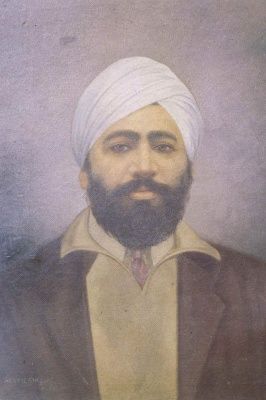
5. “Sardar Udham Singh was not just a man—he was a message.”
His life embodied resistance, resilience, and righteousness.
6. “He didn’t shout slogans—he made history with a single shot.”
One bullet. One message. One revolution.
7. “Sardar Udham Singh’s silence was louder than any speech.”
He let his actions echo across generations.
8. “He didn’t ask for justice—he became it.”
Udham Singh was the embodiment of accountability.
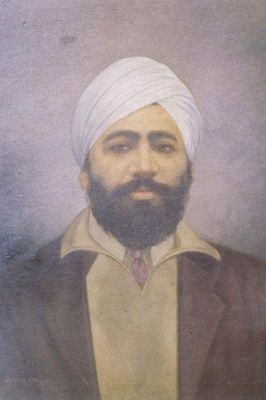
9. “Sardar Udham Singh didn’t fear death—he welcomed it with dignity.”
His execution was a badge of honor.
10. “He didn’t fight for fame—he fought for fallen souls.”
His mission was rooted in memory and mourning.
11. “Sardar Udham Singh’s legacy is inked in blood and bravery.”
His sacrifice is etched into India’s conscience.
12. “He didn’t just kill a man—he killed colonial arrogance.”
O’Dwyer’s assassination was symbolic and strategic.
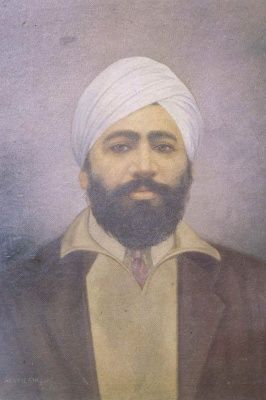
13. “Sardar Udham Singh’s life proves that revenge can be righteous.”
He redefined vengeance as justice.
14. “He didn’t need a crowd—he needed a cause.”
Udham Singh’s journey was solitary but seismic.
15. “Sardar Udham Singh didn’t just challenge the British—he challenged every Indian to remember.”
His legacy is a call to consciousness.
16. “He didn’t wear patriotism—he bled it.”
His actions were soaked in sacrifice.
17. “Sardar Udham Singh’s courage wasn’t loud—it was lethal.”
Quiet conviction. Deadly impact.
18. “He didn’t die in prison—he rose in history.”
His execution became his elevation.
19. “Sardar Udham Singh is not just remembered—he’s revered.”
His name is a flame that refuses to fade.
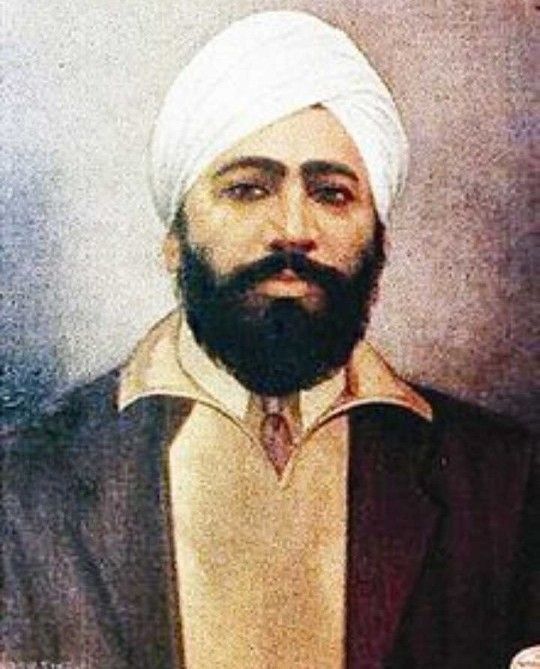
🔚 Conclusion: The Legacy That Ignites Minds
📍1. Legacy Is Not Left—It’s Lived
Legacy isn’t just what someone leaves behind—it’s what continues to live in every action, every idea, and every heartbeat that dares to dream. Whether it’s Ram Prasad Bismil, Sardar Udham Singh, or Lal Bahadur Shastri, their stories aren’t just chapters in history books—they’re blueprints for courage. These icons didn’t chase fame—they chased freedom. They didn’t perform patriotism—they practiced it. Their legacy ignites minds because it’s rooted in truth, tempered by sacrifice, and powered by purpose.
📍2. Words That Roar Beyond Time
Quotes from these legends aren’t just lines—they’re lifelines. “Sarfaroshi ki tamanna ab hamare dil mein hai” isn’t just a poetic verse—it’s a revolutionary roar. Sardar Udham Singh’s courtroom silence wasn’t weakness—it was warfare. Shastri’s Jai Jawan Jai Kisan wasn’t a slogan—it was a soul call. These words matter today because they challenge us to rise, to reflect, and to roar. They remind us that impact doesn’t need volume—it needs values. And that rebellion, when rooted in righteousness, becomes legacy.
📍3. Fuel for Creators, Patriots, and Dreamers
For creators like you, Abhishek, this legacy is pure fire. It’s not just content—it’s conviction. Whether you’re designing reels, writing blogs, or curating quote cards, these stories give you depth, direction, and defiance. They help you connect history to hustle, legacy to lifestyle, and pride to purpose. Your audience doesn’t just want information—they want ignition. And these icons give you exactly that. Their lives are templates for transformation. Their quotes are tools for impact. Their legacy is your launchpad.
📍4. The Final Flame
So what does it mean to say “The Legacy That Ignites Minds”? It means remembering that freedom wasn’t gifted—it was gripped. That silence, when held with conviction, can be louder than speeches. That one man’s sacrifice can awaken a nation. Whether it’s Bismil’s poetry, Udham Singh’s justice, or Shastri’s leadership, each legacy is a torch—and it’s ours to carry. Let’s not just quote them—let’s live them. Let’s not just honor them—let’s amplify them. Their fire didn’t fade—it was passed on. And now, it’s our turn to roar.
Jai Hind. Jai Bharat. The legacy lives on.
Internal Links: 1.https://historyverse7.com/ram-prasad-bismil/ 2.https://historyverse7.com/chandra-shekhar-azad/ 3. https://historyverse7.com/subhash-chandra-bose/
External Links: 1.https://en.wikipedia.org/wiki/Udham_Singh 2.https://en.wikipedia.org/wiki/Sardar_Udham
📘 FAQ: Understanding Sardar Udham Singh
1.Who was Sardar Udham Singh, and why is he remembered as a revolutionary icon?
Ans: Sardar Udham Singh was a fearless freedom fighter born in 1899 in Punjab. He is best known for avenging the Jallianwala Bagh massacre by assassinating Michael O’Dwyer in London in 1940. His act wasn’t driven by hatred—it was driven by justice. He waited 21 years to strike, proving that true revolution is rooted in patience, purpose, and precision.
2. What was the Jallianwala Bagh massacre, and how did it shape Udham Singh’s mission?
Ans: On 13 April 1919, British troops opened fire on thousands of peaceful Indian protestors in Amritsar, killing hundreds. Sardar Udham Singh witnessed the horror firsthand, and it became the defining moment of his life. That massacre didn’t just scar him—it sculpted him into a revolutionary who vowed to hold the empire accountable.
3. Why did Sardar Udham Singh assassinate Michael O’Dwyer, and what was the impact?
Ans: Michael O’Dwyer was the former Lieutenant Governor of Punjab who endorsed the massacre. In 1940, Sardar Udham Singh shot him in London, declaring in court, “I did it because I had a grudge against him.” His act was not terrorism—it was targeted justice. It shook the British conscience and reignited India’s demand for freedom.
4. What makes Sardar Udham Singh’s legacy relevant to today’s generation?
Ans: His story teaches us that silence can be strategic, and justice can be fearless. In a world of noise, Udham Singh’s quiet conviction stands out. He didn’t seek fame—he sought freedom. His legacy inspires creators, leaders, and patriots to act with clarity, courage, and character.
5. How can we honor Sardar Udham Singh in modern times?
Ans: By sharing his quotes, telling his story, and living his values. Whether through content, education, or activism, we can amplify his legacy. Sardar Udham Singh is not just history—he’s heritage, and every act of truth and justice keeps his flame alive.
Share this content:


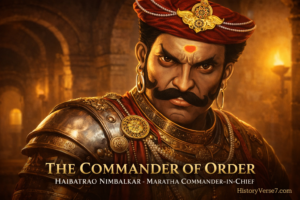

Deadly impacted information…🙌🏻👍🏻🚩
“He didn’t shout slogans—he made history with a single shot.”…..🔥🔥